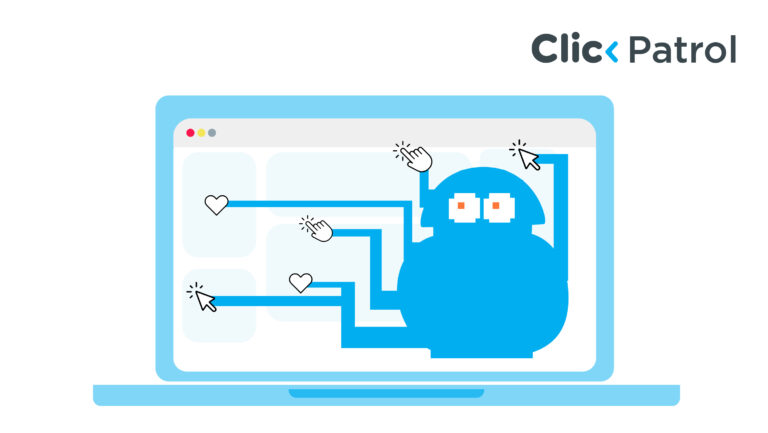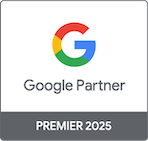
PPC for Small Businesses: A Guide to Boosting Your Digital Presence
Abisola Tanzako | Dec 12, 2024

Table of Contents
PPC for small businesses is changing how small businesses approach marketing, offering targeted strategies to maximize visibility and drive results. For any business on a budget and willing to compete in a very aggressive market like digital marketing, PPC offers a cost-effective and highly measurable way of attracting targeted customers.
In this article, we will delve into the basic components of PPC, discuss why it is compulsory for small businesses, outline strategies to optimize ROI, and share some real-world tips to get you started.
What is PPC, and why does it matter for small businesses?
PPC is an online advertising model in which the business pays a certain amount every time the ad is clicked. Google Ads, Microsoft Ads, and social media platforms like Facebook, Instagram, and LinkedIn are commonly used channels for running such targeted ads. Large companies have huge marketing budgets, but with PPC, small enterprises are more effective since the targeting is laser-sharp regarding keyword targeting, demographics, and geographies.
Benefits of PPC for small businesses
The benefits of small business PPC include:
- Cost control enables a business to set a budget that suits its financial capability and pay only when users click on its ads. This ensures cost accuracy and the least wastage of advertisement expenditure.
- Targeted reach: In PPC campaigns, businesses can target specific audiences based on search intent, interests, location, and demographics, thus helping their ads reach the right people at the right time.
- Measurable ROI: With platforms like Google Ads, one can understand a campaign’s performance level through clicks, impressions, and conversions, thus assisting in controlling ROI while running optimized campaigns.
- Quick results: PPC will give instant visibility on search engines and other platforms, raising traffic and generating leads much faster than SEO, which takes some time to build its pace.
- Local targeting for small businesses: PPC works best when capturing the attention of a small business’s localized target audience, ensuring relevance and higher conversion rates.
- Improved customer intelligence: PPC systems provide an enormous amount of data related to user behavior, such as keywords used, device preference, and geographic and other demographic information. This data helps small businesses adjust their marketing methods and foster better customer relations.
PPC in numbers: Why small businesses should invest.
To state the value of small business PPC advertising, here is some data showing it has been among the most effective digital marketing strategies for small businesses:
- 75% say paid ads make finding what they want online easier. Statistics show that users do not consider paid advertising an annoyance; instead, they consider it a shortcut to what they want to find. Through targeted queries and ready answers, PPC will ensure that businesses are in front of people searching for their products or services.
- 46% of SERP clicks go to the top three paid advertising slots. Paid ads capture the most valuable SERP real estate, so they are the first things that will pop up to the user. This, in turn, raises the possibility of clicks and allows small businesses to compete effectively against larger competitors with organic positioning.
- Small businesses see an average ROI of $2 for every $1 spent on Google Ads, though well-optimized campaigns can achieve much higher returns. They are highly measurable, which allows small businesses to optimize and adjust strategies for improvement continually. With the potential to double their investment and, at times, achieve returns as high as 10:1 or even more, PPC provides a direct route to profitability when managed correctly.
- 81% of SMBs use at least one PPC platform, showing that it is beginning to gain wide acceptance and value. The high adoption rate reflects how well PPC can level the playing field for small businesses.
Common PPC challenges and how to overcome them
The work can be rewarding while having its own set of challenges. Following are some of the most common issues businesses face in PPC and some practical ways to solve them:
1. Limited budget
- Challenge: For many small businesses, the budget becomes a significant constraint when competing with more prominent advertisers with more resources.
- Solution: Geo-target your audience to only locations where your business is most relevant. Allocate more of your budget to the campaigns that continue to drive the best ROI for your business. Utilize negative keywords to filter out irrelevant searches that waste your ad spend.
2. Low CTR
- Challenge: When low ad performance, fewer clicks reduce the quality score and burn up valuable ad budget.
- Solution: Test various ad copies with compelling CTAs, using emotive language or referring to benefits that appeal to your target audience. Communicate your USPs in the ads, such as free shipping or discounts. Perform A/B testing to identify which headline, description, or visual works best for your target audience.
3. High competition
- Challenge: When competing against larger companies with bigger budgets, CPCs inflate and make it hard to gain visibility.
- Solution: Target long-tail keywords that are less competitive but relevant to your business. Such keywords usually have lower CPCs and attract users with specific search intent. Secondly, target niche markets where competition is less fierce, giving your business a better chance of standing out.
4. Ad fatigue
- Challenge: Ad frequency leads to lesser user engagement and wasted spending.
- Solution: Periodically refresh your ads. Rotate images, update ad copy, or try a new format like video ads. Performance metrics will change, and creative elements should adapt to keep your audience engaged.
5. Campaign management complexity
- Challenge: Multiple campaigns on multiple platforms are overwhelming, especially for small teams.
- Solution: To make the process easier, utilize PPC management tools like Google Ads Editor or SEMrush. Such tools aid in automating tasks, providing insider performance views, and ensuring consistency in optimization for all campaigns. Alternatively, outsource your work to a PPC professional or agency offering expert PPC management.
PPC best practices for small businesses
Best PPC practices for small businesses include:
- Use negative keywords: Add negative keywords to your campaign to block irrelevant searches, preventing your ads from showing.
- Schedule your ads: Run ads during your business’s peak hours or when your target market is most active.
- Retargeting: Utilize retargeting campaigns to interact with website visitors who have come but have never converted.
- Optimize for mobile: Ensure all advertisements and landing pages are optimized for mobile since more than 50% of web traffic today comes via mobile.
- Invest in local PPC: Brick-and-mortar stores or local services should focus more on location-based keywords and Google My Business Ads.
The strategies to enhance visibility for small business
Using PPC in your small business strategy helps you reach more customers and grow your business while staying within your budget. By planning well, targeting specific audiences, and improving your campaigns regularly, you can get the most out of your efforts. PPC is a great way to compete with bigger businesses or boost your local presence. It gives you a chance to attract loyal customers and see actual results.
When paired with regular reviews and updates to your campaigns, it helps you stay ahead of trends and make smarter marketing decisions. It also provides valuable insights into customer behavior, such as what they search for and what grabs their attention, helping refine your overall marketing approach. Using tools to track performance and make adjustments based on data, you can reduce wasted spending and focus on what works best for your business. Even businesses with small budgets can create effective campaigns that drive sales, build customer loyalty, and strengthen their brand.
FAQs
Q. 1 How long does it take to see results from PPC?
When a campaign is launched, the results can be observed almost immediately. However, ROI optimization generally takes 2-3 months.
Q. 2 Is PPC better than SEO for small businesses?
PPC gives faster results; SEO is a long-term approach. Often, a mix of both works best.
Q. 3 How can I make my PPC cheaper?
- Pay attention to high-intent, long-tail keywords.
- Use geotargeting.
- Regularly review and update your campaigns to eliminate underperforming ads.
Q. 4 Do I need a professional to manage my PPC campaigns?
While platforms like Google Ads are user-friendly, hiring a professional or agency can help optimize your campaigns for better ROI, especially if you’re new to PPC.





